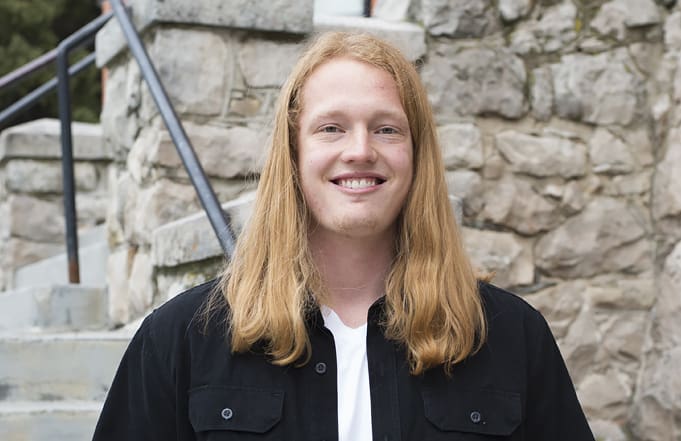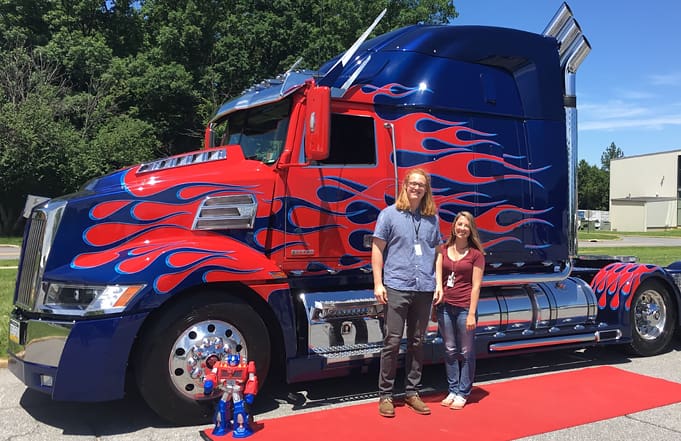July 9, 2018
Marcus Payne, a 2018 Montana Western graduate, is working for NASA on several projects including research, marketing, and partnership opportunities during his summer internship.

The highly competitive internships have an acceptance rate of only about 450 out of thousands of applicants.
This summer, two Montana Western students, including Business Administration major Marcus Payne and Business Administration and Mathematics double major Baleigh Doyle are participating in summer internships at NASA’s Goddard Space Flight Center (GSFC) in Maryland.
The Montana University System (MUS) is committed to providing students at all Montana campuses with hands-on research experiences, while preparing them to compete nationally for research internships that will allow them to gain exposure to cutting-edge techniques and ideas.
One of the cutting-edge projects Payne has been assigned at NASA is the creation of a marketing campaign that showcases successful licensing agreements and partnerships that connect external companies to technologies, which are developed at GSFC.
“After completing two years at a university with a traditional schedule, I’m thankful for finishing my university career at Montana Western. The hands-on, team-oriented nature of Experience One translates well to the work environment at NASA. I work with a collaborative group of people on projects everyday and that’s what Montana Western prepared me for,” said Payne about UMW’s unique block scheduling program.
NASA frequently patents new technologies in software, hardware, and processes. Part of NASA’s obligation is to make these innovations available to the private sector through the Strategic Partnerships Office (SPO), where Payne, a native of Livingston, Mont., is working this summer. According to NASA’s SPO website, the technologies are available from three different core program areas.
The first area is through technology transfer, which promotes the transfer of GSFC-developed technology to the private sector.
The Small Business Innovation Research (SBIR) and Small Business Technology Transfer (STTR) programs, which manages the award of R&D contracts to small businesses and university partners consistent with NASA-wide and GSFC-specific directives form the second area.
Lastly, partnerships, which encourage creative collaborations between GSFC researchers and external parties for mutual benefit, make up the third program area.

Payne is also working with the Optimus Prime Spinoff Promotion & Research Challenge (OPSPARC) program team. According to NASA, “students (in grades 3-12) are asked to use their imagination to identify NASA Spinoff technology in their everyday world using memory foam, artificial limbs, scratch-resistant lenses, shoe insoles, etc. that were first developed for a NASA mission and re-worked to make everyday life easier.”
Students displayed their research in a multimedia poster that was submitted and shared with NASA. The OPSPARC first place teams or individuals received a stipend to visit Goddard Space Flight Center for two days of hands-on workshops with astronauts and scientists in addition to attending the award ceremony. Payne assisted with the award ceremony and workshops, held June 13-14, 2018, of this exciting competition for students across the United States and Canada.
Payne is also researching business incubators in Washington, D.C., Maryland, Virginia, and Delaware.
“Start-ups and businesses that use these incubators could benefit from NASA technologies, so we want to identify businesses that would be good fits for partnerships,” said Payne.